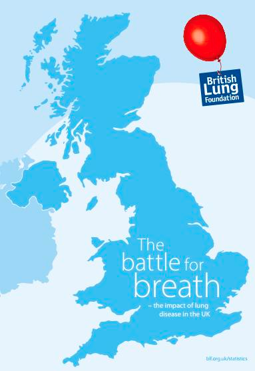

Health Inequalities and Respiratory Disease
In 2016, the British Lung Foundation (now Asthma + Lung UK) published The Battle for Breath – the report of a three-year epidemiological study into lung disease 2. In the foreword by Sir Michael Marmot he explained that the “most deprived section of society is two-and-a-half times more likely to have COPD and nearly twice as likely to develop lung cancer as someone from the least deprived section of society”.
The report explored the link between inequality and lung disease and the primary conclusions were:
- Lung cancer and COPD were considerably more common in the most deprived communities, due to the association with smoking.
- Outdoor air pollution, which is generally higher in deprived urban areas, is known to worsen symptoms of lung disease and can cause lung disease to develop.
- Around 80% of mesothelioma cases occur in men. Those most at risk are people who have been exposed to asbestos while working in heavy industry or the armed forces.
In the Marmot Review 10 years On report 3 it was revealed that in the decade after the original report, rather than seeing further improvements in life expectancy and healthy life expectancy, we had stopped improving and in some parts of the UK and in certain groups the situation was now in reverse.
For those who have worked in respiratory care for many years, this may appear as a confusing and disappointing paradox because in recent decades we have seen an increase in the availability of evidence-based treatments for common respiratory disease, large reductions in the tobacco smoking population and great attention has been given to reducing air pollution, asbestos and other occupational risks. The reality however for high income countries is that whilst improvements for respiratory health can be seen in the overall population, the impacts of these risk factors stubbornly persist in the groups exhibiting health inequality4.
It would appear that we have the necessary respiratory toolkit to help people but it is being used more effectively with the better off in society and less so with the least privileged. As Marmot explained in 2010, now is the time to make health care primarily about addressing inequality otherwise our hard work will only serve to widen the health attainment gap.